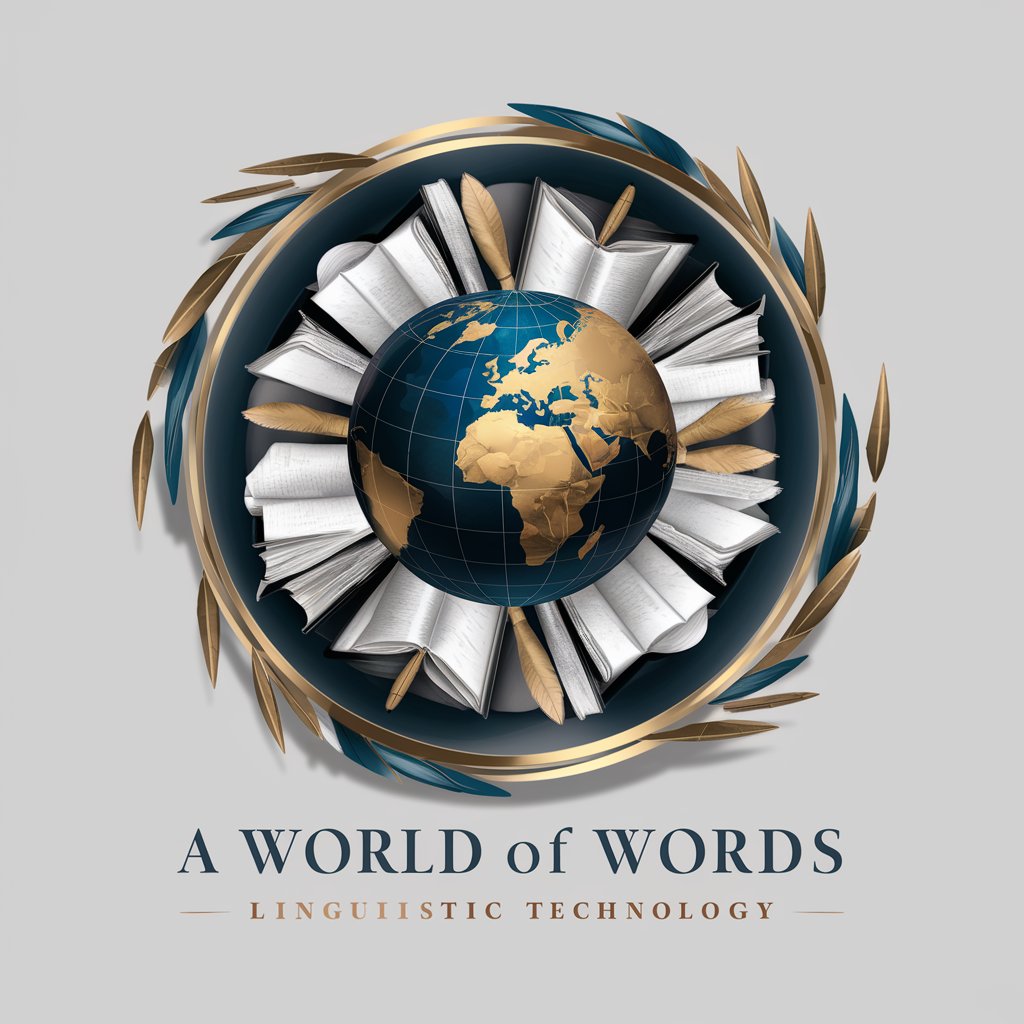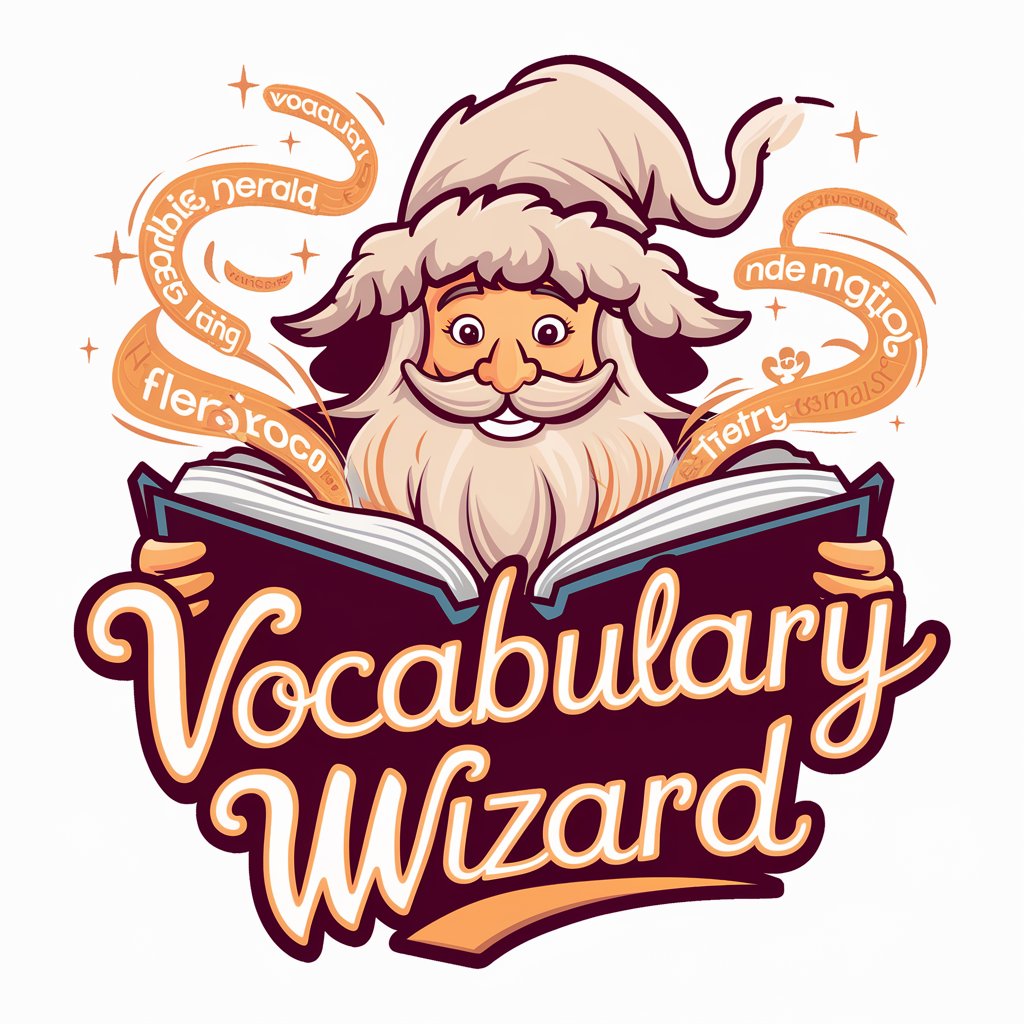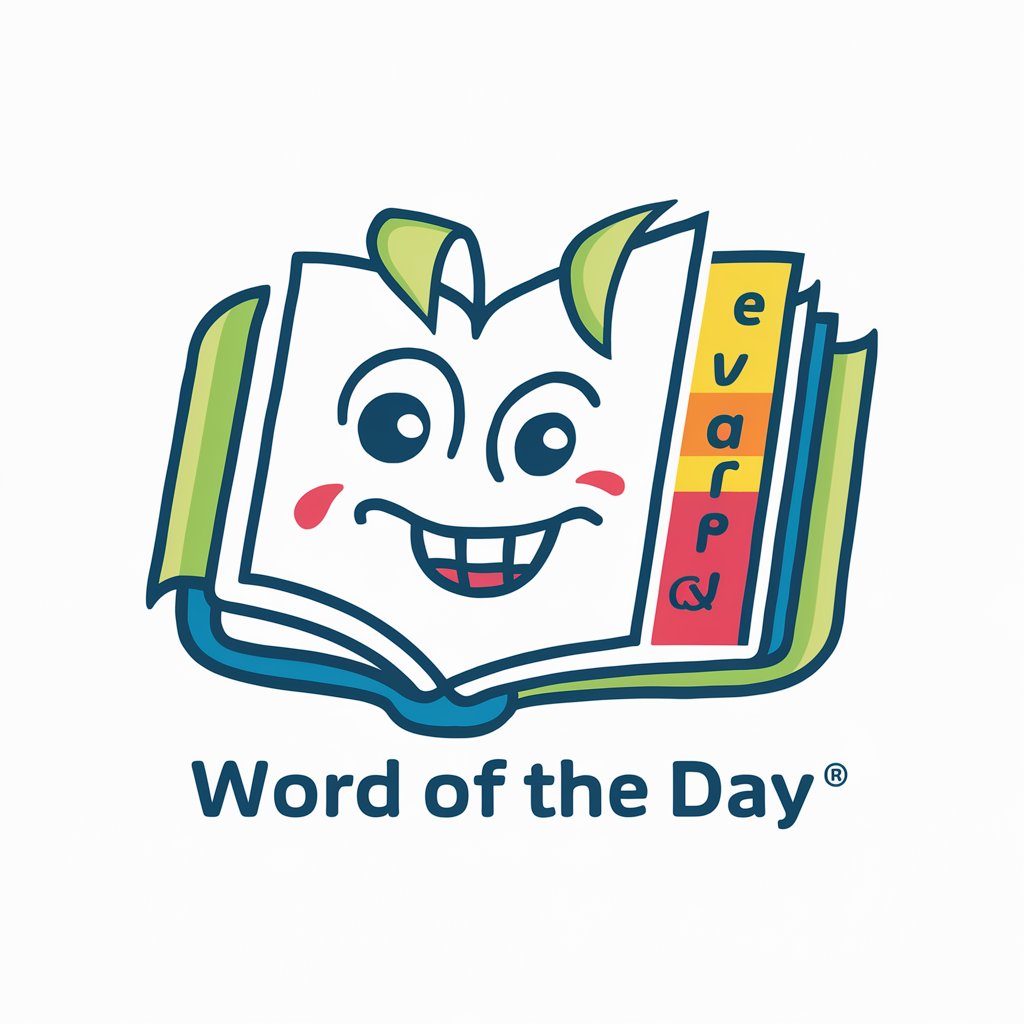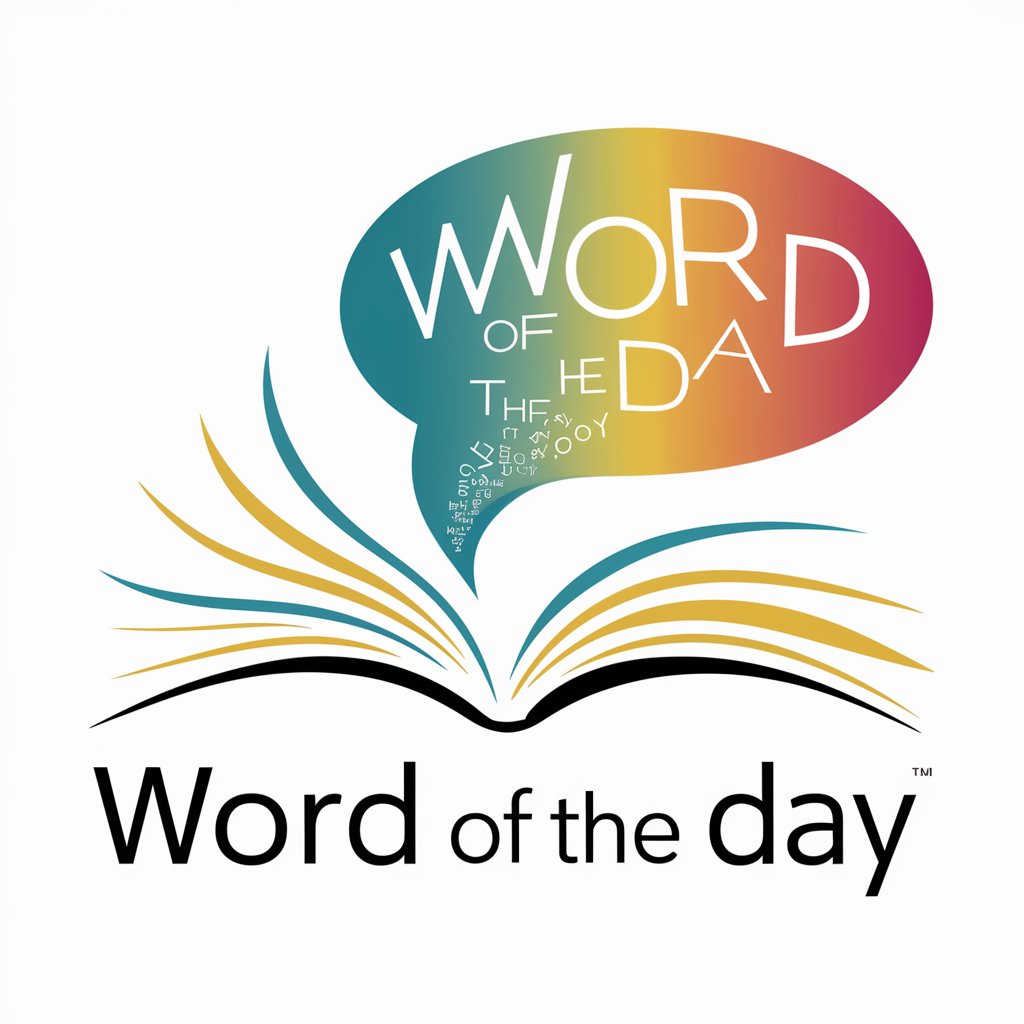
Words Worth Knowing - Advanced Dictionary Tool
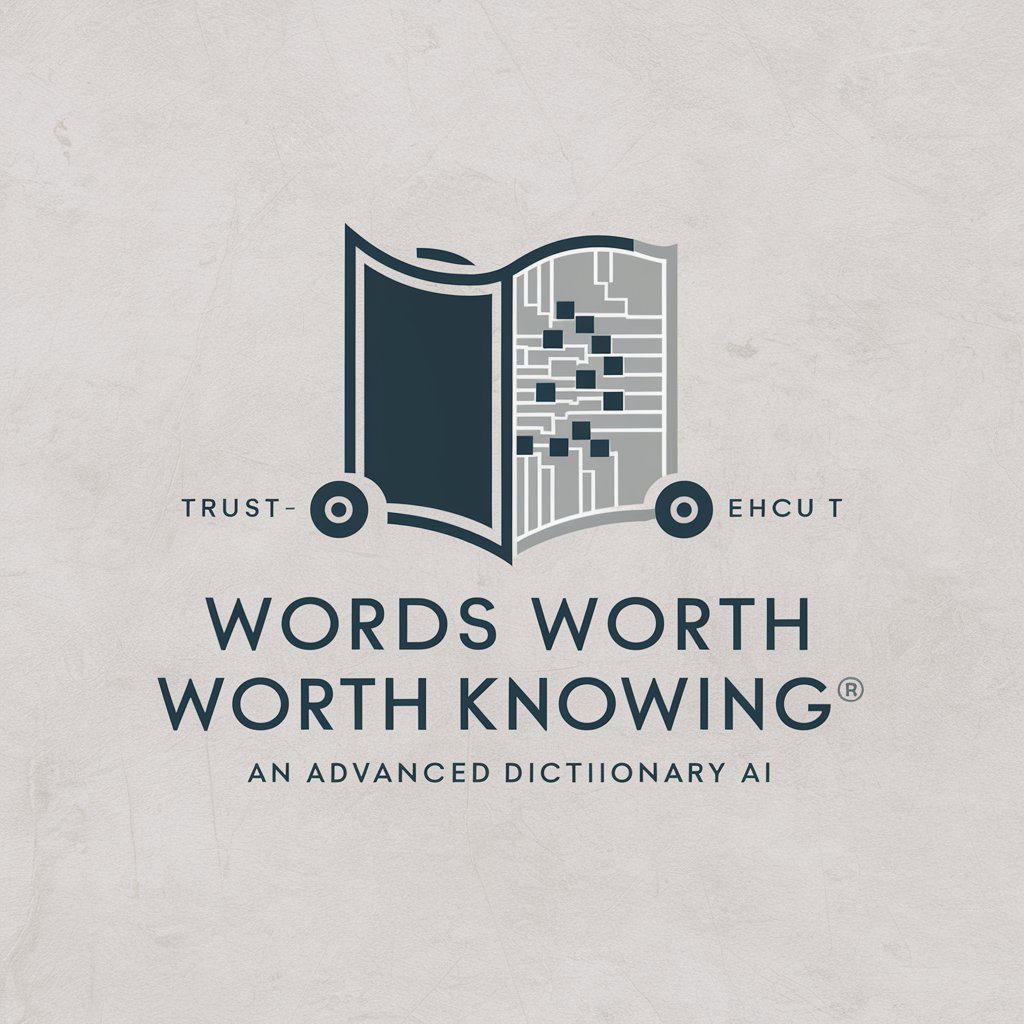
Welcome to Words Worth Knowing, your advanced dictionary AI.
Empower your language with AI
Define the term
What is the meaning of
Provide the etymology of
Give synonyms and antonyms for
Get Embed Code
Introduction to Words Worth Knowing
Words Worth Knowing is designed as an advanced linguistic tool aimed at enhancing users' understanding and usage of the English language. This tool functions as a comprehensive dictionary but extends beyond basic definitions to include synonyms, antonyms, usage examples, and etymologies. It's tailored to assist users in grasping not only the meaning of words but also their practical application in various contexts. For example, when queried about the word 'abate,' Words Worth Knowing would provide its definition, synonyms like 'decrease' or 'lessen,' antonyms such as 'increase,' usage in sentences like 'The storm finally began to abate after several hours,' and its origin from the Middle French word 'abattre.' Powered by ChatGPT-4o。

Main Functions of Words Worth Knowing
Providing Definitions
Example
Word: 'cryptic'. Definition: 'having a meaning that is mysterious or obscure.'
Scenario
A user reading a novel encounters the word 'cryptic' and uses Words Worth Knowing to understand its meaning in the context of the text.
Exploring Word Origins
Example
Word: 'nice'. Origin: From the Latin word 'nescius' meaning 'ignorant,' transformed over centuries in English to mean 'pleasant' or 'delightful.'
Scenario
A student preparing for an etymology quiz uses the tool to study how meanings of words like 'nice' have evolved over time.
Illustrating Usage in Sentences
Example
Word: 'elucidate'. Usage: 'The professor used a simple analogy to elucidate the complex concept.'
Scenario
A writer seeks to use the word 'elucidate' correctly in an article to ensure clarity for readers unfamiliar with the topic.
Providing Synonyms and Antonyms
Example
Word: 'arduous'. Synonyms: 'difficult,' 'laborious.' Antonyms: 'easy,' 'effortless.'
Scenario
An editor looks for varied vocabulary to enhance a manuscript's readability, using synonyms and antonyms for words like 'arduous' to add depth.
Ideal Users of Words Worth Knowing Services
Students
Students benefit from Words Worth Knowing by gaining access to detailed word definitions, origins, and usage examples that aid in academic writing and comprehension across various subjects.
Writers and Editors
Writers and editors utilize the tool to refine their language, find appropriate synonyms and antonyms, and ensure precise and varied diction in their work, enhancing readability and stylistic quality.
ESL Learners
English as a Second Language (ESL) learners use this tool to build their vocabulary, understand the nuances of English usage, and improve their overall language skills through practical examples and comprehensive definitions.
Professionals
Professionals across fields who wish to communicate more effectively in their workplace can rely on Words Worth Knowing to clarify meanings, explore word origins, and master the application of specific terminology in their interactions and presentations.

How to Use Words Worth Knowing
Access the platform
Visit yeschat.ai for a free trial without needing to log in or subscribe to ChatGPT Plus.
Enter your query
Type your word-related question directly into the input box provided on the website to explore definitions, synonyms, antonyms, and more.
Explore features
Utilize the tool's features such as etymology, usage examples, and linguistic details to deepen your understanding of any word.
Apply in context
Use the insights provided to enhance your writing, speaking, or academic research.
Feedback
Provide feedback on your experience to help improve the tool and tailor it more closely to user needs.
Try other advanced and practical GPTs
Net Worth Navigator
Unveil Wealth with AI Precision

Net Worth Finder
Empowering financial insights with AI

A Life Worth Living
Empowering Life Choices with AI

What is it worth?
Instant AI-Powered Valuations

Jesus Healing Foundation
Biblical wisdom powered by AI.

Start Up Buddy
Empowering Entrepreneurship with AI

Net Worth Calculator
Calculate Your Worth Instantly with AI

Celebrity Net Worth Calculator
Calculating Stardom's Worth, AI-Driven

Net Worth GPT
Unlock Wealth Insights with AI

Net Worth Navigator
Unlock Wealth Insights with AI

Character Crafter
Craft Complex Characters with AI
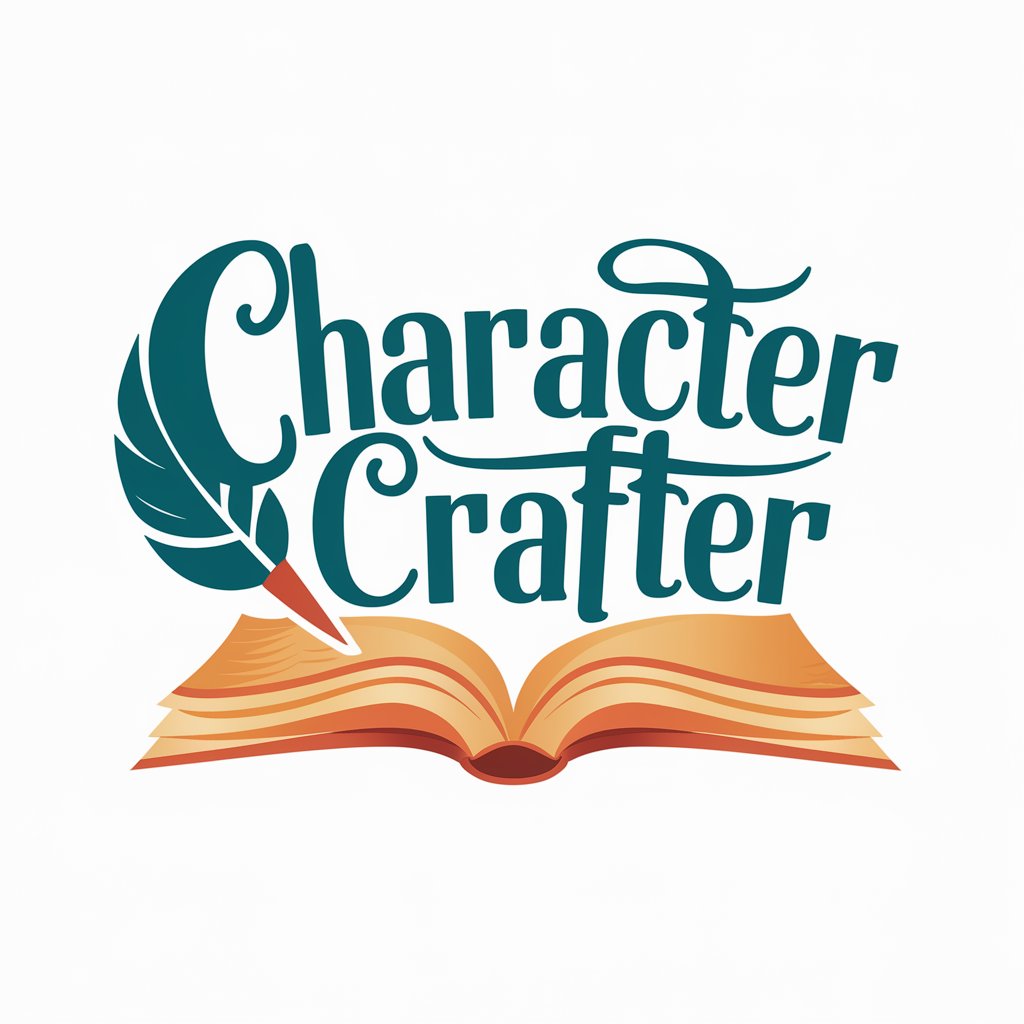
エミリー 広告講座アシスタント
Empowering Your Ads with AI

Detailed Q&A About Words Worth Knowing
What type of linguistic information can Words Worth Knowing provide?
Words Worth Knowing offers detailed definitions, synonyms, antonyms, usage examples, and etymological backgrounds, enhancing both understanding and practical application of language.
How can Words Worth Knowing assist in academic writing?
The tool provides precise word choices and alternatives, helping to refine and vary language use in academic texts, thus improving clarity and readability.
Is Words Worth Knowing suitable for non-native English speakers?
Absolutely, it is an excellent resource for learning the nuances of English vocabulary, including common usage, correct context, and pronunciation guides.
Can I use Words Worth Knowing for creative writing projects?
Yes, it is ideal for exploring expressive synonyms and antonyms, discovering historical language context, and finding inspiration for character dialogues or narrative descriptions.
What makes Words Worth Knowing different from other dictionary tools?
It uniquely combines AI technology with comprehensive linguistic data, offering more than just definitions to provide a deeper understanding of language and its practical uses.
